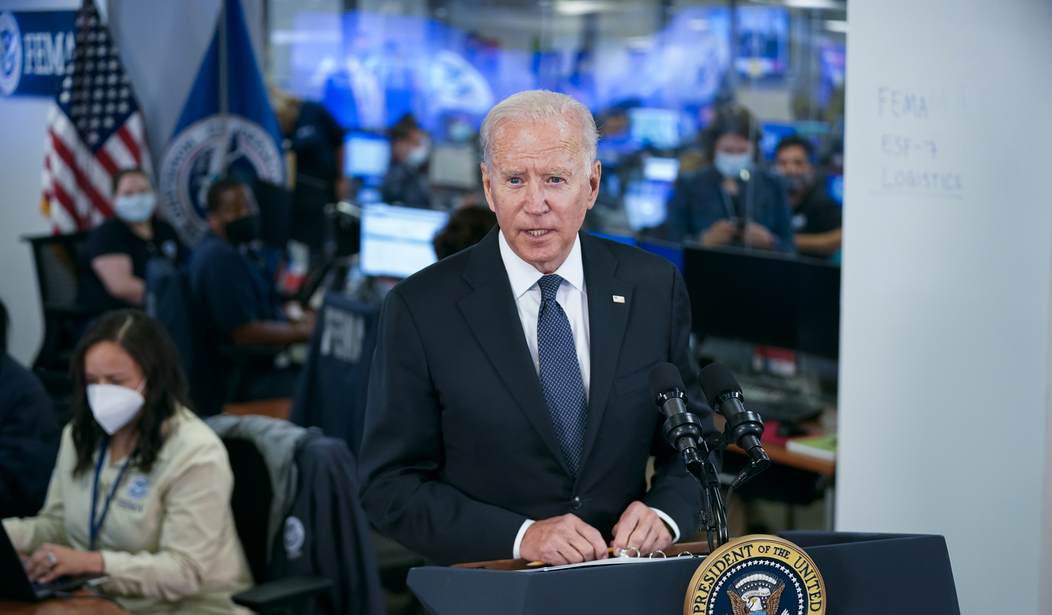Back in January, President Biden issued an order asking the U.S. Department of Agriculture (USDA) to “consider” updating food stamp benefits to reflect “the true cost of a basic healthy diet.”
When your boss asks you to consider doing something, most employees—at least those interested in keeping their jobs—know this isn’t really a request at all. Fast-forward to August 16. Not surprisingly, the USDA responded to Biden’s “request” by increasing food stamp benefits by an astounding 25 percent.
That’s a massive expansion of welfare—and it’s harmful, misguided, and illegal.
If the administration were being honest in its stated claims of trying to improve the health of Americans who use food stamps, it could have worked with policy experts and representatives in Congress to come up with an effective solution. Instead, it made the misguided decision to bypass Congress and simply throw money at the situation with no strings attached.
This will not single-handedly solve the health concerns millions of Americans face and, in the process, the Biden administration is harming families by deepening their dependence on the government. Coupled with unemployment bonuses, the child tax credit, and other welfare benefits, this administration is working overtime to deprive families of the opportunity for freedom, joy, and self-sufficiency that comes with a path forward off welfare and into the workforce.
At a time when there are more than10 million open jobs in our country, this sudden increase in food stamps reeks of political maneuvering. It’s also against the law.
To pass legal muster, the policy must meet certain expectations set out by existing regulations. And that has not happened.
USDA defends its massive expansion by pointing to a provision in the 2018 Farm Bill that requires more regular re-evaluations of the Thrifty Food Plan based on “current food prices, food composition data, consumption patterns and dietary guidance.”
Recommended
But Congress’s direction to reevaluate food stamp benefits doesn’t negate USDA’s other procedural obligations. For example, USDA didn’t provide notice of the planned change or an opportunity for comments under the Administrative Procedure Act (APA), a federal law designed to prevent this kind of unreasoned, politically motivated executive action.
Under the APA, as part of the rule making process, federal agencies are required to open a proposed new rule, such as the change at issue here, for comments in support or opposition before making anything final. During this time, Congress, organizations, and other individuals are afforded the opportunity to make their feelings known and share their evidence. Yet they were denied this opportunity with this food stamp increase.
USDA’s new sweeping change also means it has abandoned its cost-neutral policy, a policy that has been in place for 45 years. This policy required USDA to adjust the value of food stamp benefits periodically based on inflation while requiring that the total value of the benefits be kept in line with what they were back in 1975, again, adjusted for inflation. To do otherwise would mean that the President would decide how much is spent on food stamps rather than Congress. The abandonment of this decades-old policy without a sufficient explanation, by itself, is significant enough to also trigger APA’s requirements for notice and comments. It also means that when this policy is challenged legally, it will fail the“arbitrary and capricious”standard applied by courts—a standard courts apply when determining whether a federal agency has followed the requirements of the APA in creating its new rule.
In case the violation of two federal laws is not enough, add into the mix that USDA is increasing benefit allotments beyond what Congress has appropriated and you’ve got a clear non-starter. As a matter of statutory law, if USDA raises the dollar amount of food stamps to a level that exceeds what Congress has appropriated, federal law explicitly requires that the amount be reduced.
Political convenience is not a legal defense for ignoring the law while blindly throwing money at a problem not to solve it, but rather to buy approval ratings. State governors and attorneys general wishing to preserve our Constitution, stop the endless cycle of government dependency, and ensure the Biden administration follows the law have the grounds to challenge this illegal action under the APA and other authority—and they must.
Stewart Whitson is the Legal Affairs Fellow at the Foundation for Government Accountability.






















Join the conversation as a VIP Member